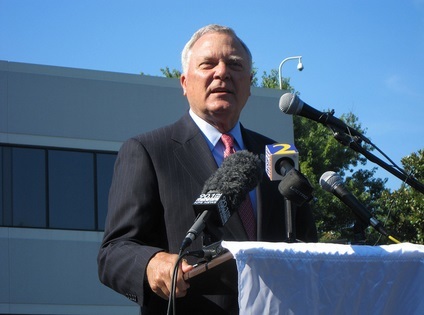Testing costs have removed Georgia from the list of states that will administer PARCC, one of the two national Common Core tests, the state Department of Education announced.
The Partnership for Assessment of Readiness for College and Careers, or PARCC, measures by standards different from Georgia’s current assessment, the Criterion-Reference Competency Test (CRCT). To administer the latter, five-subject assessment, Georgia taxpayers pay $8-$9 per student each year. July 22 projections said administering the two-subject PARCC test would cost Georgians $29.50 per student.
“The whole [PARCC] test is going to collapse in a heap,” said Jane Robbins, a Georgian and senior fellow at the American Principles Project. “I think about every state has better standards than Common Core. I would be surprised if Georgia stayed with it.”
To date, five states that joined PARCC by 2010 have dropped the assessment. Eighteen states and Washington D.C. remain in the consortium.
“Adopting the PARCC assessment would limit the ability of Georgia to make adjustments or changes to our standards as we see fit,” state Superintendent John Barge wrote in an email to school district leaders. “If Georgia educators determine that certain standards need to be shifted or revised, we would run the risk of no longer being aligned with the PARCC assessment. Such misalignment would put our students at a disadvantage.”
Ballooning Costs
Because PARCC only evaluates English and mathematics, Georgia plans to administer additional exams created by the state on history, science, and social studies. The state’s current assessment budget is $25 million. The projected cost of PARCC alone would equal more than twice that amount.
“It’s not a case of standards,” said Georgia Department of Education spokesman Matt Cardoza. “[Common Core] standards are not terribly different than our standards now. One of the concerns we’ve had from the very beginning is cost.”
Cardoza said Georgia had been working with a few states to develop a “Plan B” in the event they can’t afford PARCC. The July 22 announcement said Georgia will develop its own Common Core tests.
“Georgia can create an equally rigorous measurement without the high costs associated with this particular test,” said Gov. Nathan Deal (R) in a statement.
PARCC tests would also cost taxpayers more through the technology they require, since PARCC tests will be all-online, state Superintendent John Barge noted.
“A majority of our districts are not ready for full-scale, online assessments across all grades,” Barge wrote. “The state does not currently have the technology infrastructure or sufficient hardware to handle the test administration demands of PARCC.”
The state Department of Education also promised its tests would be shorter than the 10-hour tests PARCC plans to administer four times a year.
‘Worst Stewardship’
In 2010, Georgia was awarded a $400 million Race to the Top Grant to fund education changes over four years. One change it committed to during that process was national Common Core standards and tests.
“The deadline [for the grant application] was so quick, states we were not given time to consider what [Common Core] would cost,” Robbins said. “They wanted to hear back quickly before anyone could back out. We bought this thing without thinking how much we could pay for it.”
Georgia’s annual education budget is approximately $13 billion. Robbins says adopting Common Core was not worth the Race to the Top grant since the latter will not even cover the expenses to administer the standards and tests.
“This is the most appallingly worst stewardship of Georgia taxpayer money that I can recall,” Robbins said. “This is a classic example of short-term thinking. They were desperate for the money because of a deep recession. They didn’t think it through.”
Robbins says it is unlikely the federal government will demand the grant money back because Georgia dropped PARCC tests. Half of it is already spent, and such a demand would be bad politics.
“Requiring states to return the money would hurt the government,” she said. “It would prove what they said is not a federal thing is actually a federally coerced scheme.”
Fifteen states must remain in PARCC to retain the $186 million federal grant that sustains it.
Image by the Public Information Office of Marietta, Georgia.




